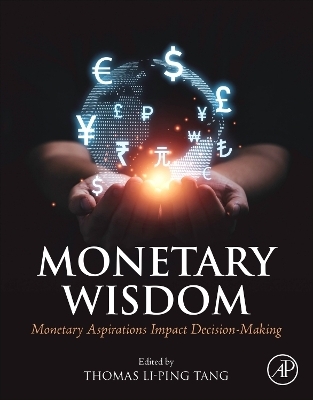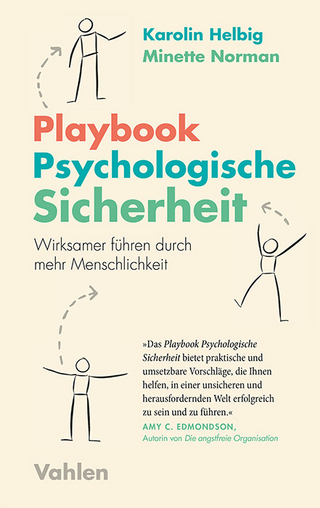
Monetary Wisdom
Academic Press Inc (Verlag)
978-0-443-15453-9 (ISBN)
Thomas Li-Ping Tang (Ph.D., Case Western Reserve University) is currently Professor Emeritus of Management, at the Jennings A. Jones College of Business, Middle Tennessee State University (MTSU). He has presented 263 papers in 27 countries and published more than 220 articles/chapters in 6 languages, including 33 on the Financial Times’ Top 50 Journals list. Researchers have substantiated his monetary wisdom in more than 50 countries across six continents and cited him in Bloomberg, CNN, and Financial Times. Köseoglu, Yildiz, and Ciftci (2018) ranked him the 8th in the world for his contributions to business ethics (1960-2015). He has served on the editorial board of 15 journals and as an associate editor for 2. As a recipient of the Career Achievement Award (MTSU) and the Best Reviewer Awards (Emerald and the Academy of Management), he is a Fellow of the International Association of Applied Psychology.
Introduction: Monetary wisdom: Crafting an inspirational, memorable, and practical theory and telling an interesting story
Section A: Money, monetary values, and motivation
1. Money is power: The love of money and materialism among Czech university students
2. Are you satisfied with your pay when you compare? It depends on your love of money, pay comparison standards, and culture
Section B: Monetary values, temptation, and dark consequences
3. Falling or not falling into temptation? Multiple faces of temptation, monetary wisdom, and unethical intentions across genders
4. Temptation, monetary wisdom (the love of money attitudes), and environmental context on unethical intentions and cheating
5. Avaricious justice-seeking dishonesty—Aspiration, dissatisfaction, and low transparency incite cheating: The dark side of monetary decision-making
6. Theory of monetary wisdom: Money attitudes predict religious values, making money, making ethical decisions, and making the grade—Academic achievement
7. Is the love of money the root of all evils? Income, the love of money, pay satisfaction, commitment, and unethical intentions among Hong Kong professionals
8. Intelligence vs. wisdom: Does ethics intervention enhance learning and virtue? Money, the love of money, Machiavellianism, and dishonesty across majors and genders
9. Behavioral economics and Monetary Wisdom: The Enron Effect—Love of money, Corporate Ethical Values, Corruption Perceptions Index (CPI), and dishonesty across 31 geopolitical entities
10. Behavioral economics and monetary wisdom: A cross-level analysis of monetary aspiration, pay (dis)satisfaction, risk perception, and corruption in 32 nations
Section C: Leadership, creativity, and honesty
11. Do leader and member perceptions of the LMX excite member creativity? The mediating role of employee positive emotion
12. Love of Money and unethical behavior intentions: Do perceptions of Authentic Supervisors' Personal Integrity and Character (ASPIRE) make a difference?
13. Does moral leadership enhance employee creativity? Employee identification with the leader and leader-member exchange (LMX) as two mediators: Discovery from China’s emergent market
14. Do victims of supervisor bullying suffer from poor creativity? Social cognitive and social comparison perspectives
15. Do ethical leaders enhance employee ethical behaviors? Organizational justice and ethical climate as dual mediators and leader moral attentiveness as a moderator: Empirical support from Iraq’s emerging market
Section D: Monetary Wisdom, well-being, global challenges, and implications
16. Does interpersonal justice enhance organizational loyalty? A theory of justice, organizational citizenship behavior, and individualism: Testimony from Kyrgyzstan
17. European airline cockpit and cabin crew well-being during the COVID-19 lockdown: Does union satisfaction have a buffering effect on mental health, organizational dehumanization, medication use, and job insecurity?
18. The Matthew Effect in Monetary Wisdom
19. Detecting honest people’s lies in handwriting: The power of the Ten Commandments and internalized ethical values
20. Behavioral economics and Monetary Wisdom across 32 cultures: Good apples enjoy a good quality of life in good barrels
21. Youth materialism and consumer ethics: Gen Z adolescents’ self-concepts (power and self-esteem) as dual mediators and culture (China vs. France) as a moderator
22. Monetary wisdom’s practical implications—Does mindfulness excite ethical intentions via diminished avaricious monetary aspirations? Mindfulness training, timing, and practice
23. Consumer behavioral economics and monetary wisdom—A penny saved is a penny earned: Monetary intelligence and emotional intelligence impact financial decision-making
| Erscheinungsdatum | 25.05.2024 |
|---|---|
| Verlagsort | San Diego |
| Sprache | englisch |
| Maße | 216 x 276 mm |
| Gewicht | 1510 g |
| Themenwelt | Geisteswissenschaften ► Psychologie ► Arbeits- und Organisationspsychologie |
| Sozialwissenschaften ► Politik / Verwaltung ► Europäische / Internationale Politik | |
| ISBN-10 | 0-443-15453-8 / 0443154538 |
| ISBN-13 | 978-0-443-15453-9 / 9780443154539 |
| Zustand | Neuware |
| Haben Sie eine Frage zum Produkt? |
aus dem Bereich


